With Cadel the firm favourite and an Australian team riding for the first time, this year’s Tour is going to be a thrill ride, writes Stephen Huntley.

It’s hard to believe nearly a year has passed since Cadel Evan’s famous Tour de France victory. His popular win was viewed at the time as a triumph for gritty hard work and determination, and if anything his legend and standing as a worthy champion have grown over the last 12 months.
He starts this year’s 99th Tour as outright favourite, and with good reason. The 3,479 kilometre course is perfectly suited to his talents; a prologue and two time-trial stages, and in the mountains only three summit finishes (one of those a medium-mountain stage), and four finishes after a long descent.
But while Andy Schleck and Alberto Contador will be missing, another dangerous new challenger lurks; Bradley Wiggins, who is hoping to be the first-ever Britain to win the Tour. He is exceptional at riding against the clock, is dangerous in the mountains, and has been in brilliant form so far this year. He is also a member of the well-credentialed Sky team that includes peerless sprinter Mark Cavendish.
It may seem impossible to beat the glorious drama of last year, but there’s another element in the 2012 mix that will grip Australians; our very own team, Orica GreenEDGE, will compete for the first time. They have a talented squad led by Simon Gerrans and Matt Goss, and they have a very good chance of grabbing some glorious stage wins.
So start preparing for late nights of adrenalin-pumping action, and enjoy the three-week sporting spectacular that is the Tour de France.
The teams
(note: not all these riders will be selected in their team’s nine-man Tour squad)
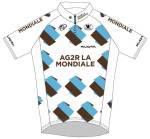 AG2R–La Mondiale (France): Key riders: Nicolas Roche (Ireland), Jean Christophe Peraud (France), Rinaldo Nocentini (Italy). Bikes: Kuota. Components: SRAM.
AG2R–La Mondiale (France): Key riders: Nicolas Roche (Ireland), Jean Christophe Peraud (France), Rinaldo Nocentini (Italy). Bikes: Kuota. Components: SRAM.
 Argos-Shimano (Netherlands): Key riders: Marcel Kittel (Germany), John Degenkolb (Germany), Alexandre Geniez (France), Patrick Gretsch (Germany), Tom Veelers (Netherlands). Bikes: Felt. Components: Shimano.
Argos-Shimano (Netherlands): Key riders: Marcel Kittel (Germany), John Degenkolb (Germany), Alexandre Geniez (France), Patrick Gretsch (Germany), Tom Veelers (Netherlands). Bikes: Felt. Components: Shimano.
 Astana (Kazakhstan): Key riders: Alexandre Vinokourov (Kazakhstan), Roman Kreuziger (Czech Republic), Janez Brajkovic (Slovenia). Bikes: Specialized. Components: SRAM.
Astana (Kazakhstan): Key riders: Alexandre Vinokourov (Kazakhstan), Roman Kreuziger (Czech Republic), Janez Brajkovic (Slovenia). Bikes: Specialized. Components: SRAM.
BMC (USA): Australians: Cadel Evans (35), Timonthy Roe (22). Other key riders: Philippe Gilbert (Belgium), Thor Hushovd (Norway), George Hincapie (USA). Marco Pinotti (Italy). Bikes: BMC. Components: Shimano.
 Cofidis (France): Key riders: David Moncoutie (France) and Rein Taaramae (Estonia). Bikes: Look. Components: Shimano.
Cofidis (France): Key riders: David Moncoutie (France) and Rein Taaramae (Estonia). Bikes: Look. Components: Shimano.
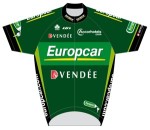 Europcar (France): Key riders: Thomas Voeckler (France), Piere Rolland (France), Sebastien Chavenel (France). Bikes: Colnago. Components: Campagnolo.
Europcar (France): Key riders: Thomas Voeckler (France), Piere Rolland (France), Sebastien Chavenel (France). Bikes: Colnago. Components: Campagnolo.
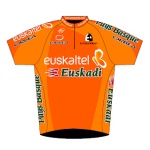 Euskatel–Euskadi (Spain): Key riders: Samuel Sanchez (Spain), Igor Anton (Spain). Bikes: Orbea. Components: Shimano.
Euskatel–Euskadi (Spain): Key riders: Samuel Sanchez (Spain), Igor Anton (Spain). Bikes: Orbea. Components: Shimano.
 FDJ–Big Mat (France): Key riders: Sandy Casar (France), Arnold Jeannesson (France). Bikes: Lapierre. Components: Shimano.
FDJ–Big Mat (France): Key riders: Sandy Casar (France), Arnold Jeannesson (France). Bikes: Lapierre. Components: Shimano.
 Garmin (USA): Australians: Nathan Haas (23), Heinrich Haussler (28). Other key riders: Christian Vande Velde (USA), David Zabriskie (USA). Bikes: Cervelo. Components: Shimano.
Garmin (USA): Australians: Nathan Haas (23), Heinrich Haussler (28). Other key riders: Christian Vande Velde (USA), David Zabriskie (USA). Bikes: Cervelo. Components: Shimano.
 Katusha (Russia): Key riders: Oscar Freire (Spain), Denis Menchov (Russia), Joaquin Rodriguez (Spain), Luca Paolini (Italy), Vladimir Gusev (Russia). Bikes: Canyon. Components: Shimano.
Katusha (Russia): Key riders: Oscar Freire (Spain), Denis Menchov (Russia), Joaquin Rodriguez (Spain), Luca Paolini (Italy), Vladimir Gusev (Russia). Bikes: Canyon. Components: Shimano.
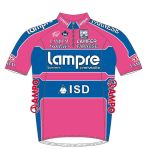 Lampre-ISD (Italy): Australians: Matthew Lloyd (29). Other key riders: Michele Scarponi (Italy), Damiano Cunego (Italy), Alessandro Petacchi (Italy). Bikes: Wilier Triestina. Components: Campagnolo.
Lampre-ISD (Italy): Australians: Matthew Lloyd (29). Other key riders: Michele Scarponi (Italy), Damiano Cunego (Italy), Alessandro Petacchi (Italy). Bikes: Wilier Triestina. Components: Campagnolo.
 Liquigas-Cannondale (Italy): Key riders: Ivan Basso (Italy), Vincenzo Nibali (Italy), Peter Sagan (Slovakia). Bikes: Cannondale. Components: SRAM.
Liquigas-Cannondale (Italy): Key riders: Ivan Basso (Italy), Vincenzo Nibali (Italy), Peter Sagan (Slovakia). Bikes: Cannondale. Components: SRAM.
 Lotto Belisol (Belgium): Australians: Adam Hansen (31). Other key riders: Andre Greipel (Germany), Jurgen Van Den Broeck (Belgium), Jelle Vanendert (Germany). Bikes: Ridley. Components: Campagnolo.
Lotto Belisol (Belgium): Australians: Adam Hansen (31). Other key riders: Andre Greipel (Germany), Jurgen Van Den Broeck (Belgium), Jelle Vanendert (Germany). Bikes: Ridley. Components: Campagnolo.
 Movistar (Spain): Key riders: Alejandro Valverde (Spain), Juan Jose Cobo (Spain). Bikes: Pinarello. Components: Campagnolo.
Movistar (Spain): Key riders: Alejandro Valverde (Spain), Juan Jose Cobo (Spain). Bikes: Pinarello. Components: Campagnolo.
 Omega Pharma-Quickstep (Belgium): Key riders: Tom Boonen (Belgium), Tony Martin (Germany); Peter Velits (Slovakia); Levi Leipheimer (USA); Sylvain Chavanel (France). Bikes: Specialized Components: SRAM
Omega Pharma-Quickstep (Belgium): Key riders: Tom Boonen (Belgium), Tony Martin (Germany); Peter Velits (Slovakia); Levi Leipheimer (USA); Sylvain Chavanel (France). Bikes: Specialized Components: SRAM
 Orica GreenEDGE (Australia): Key Australians: Jack Bobridge (22), Baden Cooke (33), Allan Davis, (31), Simon Gerrans (32), Matthew Goss (25), Cameron Meyer (24), Stuart O’Grady (38). Bikes: Scott. Components: Shimano
Orica GreenEDGE (Australia): Key Australians: Jack Bobridge (22), Baden Cooke (33), Allan Davis, (31), Simon Gerrans (32), Matthew Goss (25), Cameron Meyer (24), Stuart O’Grady (38). Bikes: Scott. Components: Shimano
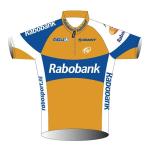 Rabobank (Netherlands): Australians: Graeme Brown (33), Mark Renshaw (29), Michael Matthews (21). Other key riders: Robert Gesink (Netherlands), Bauke Mollema (Netherlands). Bikes: Giant. Components: Shimano.
Rabobank (Netherlands): Australians: Graeme Brown (33), Mark Renshaw (29), Michael Matthews (21). Other key riders: Robert Gesink (Netherlands), Bauke Mollema (Netherlands). Bikes: Giant. Components: Shimano.
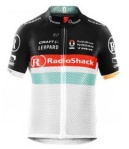 Radioshack-Nissan (Luxembourg): Key riders: Fabian Cancellara (Switzerland), Andy Schleck (Luxembourg), Frank Schleck (Luxembourg), Andreas Kloden (Germany), Jens Voigt (Germany). Bikes: Trek. Components: Shimano.
Radioshack-Nissan (Luxembourg): Key riders: Fabian Cancellara (Switzerland), Andy Schleck (Luxembourg), Frank Schleck (Luxembourg), Andreas Kloden (Germany), Jens Voigt (Germany). Bikes: Trek. Components: Shimano.
 Sky (Great Britain): Australians: Mathew Hayman (34), Richie Porte (27), Michael Rogers (32), Chris Sutton (27). Other key riders: Mark Cavendish (Britain), Bradley Wiggins (Britain), Chris Froome (Britain), Edvald Boasson Hagen (Norway), Geraint Thomas (Britain). Bikes: Pinarello. Components: Shimano.
Sky (Great Britain): Australians: Mathew Hayman (34), Richie Porte (27), Michael Rogers (32), Chris Sutton (27). Other key riders: Mark Cavendish (Britain), Bradley Wiggins (Britain), Chris Froome (Britain), Edvald Boasson Hagen (Norway), Geraint Thomas (Britain). Bikes: Pinarello. Components: Shimano.
 Saxo Bank (Denmark): Australians: Jonathan Cantwell (30), Luke Roberts (35), David Tanner (27). Other key riders: Nicki Sorensen (Denmark), Sergio Paulinho (Portugal), Chris Anker Sorensen (Denmark). Bikes: Specialized. Components: SRAM.
Saxo Bank (Denmark): Australians: Jonathan Cantwell (30), Luke Roberts (35), David Tanner (27). Other key riders: Nicki Sorensen (Denmark), Sergio Paulinho (Portugal), Chris Anker Sorensen (Denmark). Bikes: Specialized. Components: SRAM.
 Saur-Sojasun (France): Key riders: Jerome Coppel (France), Cyril Bessy (France). Bikes: Time. Components: Shimano.
Saur-Sojasun (France): Key riders: Jerome Coppel (France), Cyril Bessy (France). Bikes: Time. Components: Shimano.
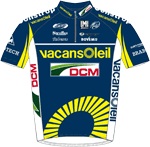 Vacansoleil-DCM (Netherlands): Key riders: Romain Feillu (France), Johnny Hoogerland (Denmark), Marco Mercator (Italy). Bikes: Bianchi. Components: Shimano.
Vacansoleil-DCM (Netherlands): Key riders: Romain Feillu (France), Johnny Hoogerland (Denmark), Marco Mercator (Italy). Bikes: Bianchi. Components: Shimano.
Stage by stage
Saturday, 30 June, Prologue – Liege (Belgium), 6.1km. The Tour begins in Belgium with a short race against the clock. The route has some long straight stretches and will suit a power rider such as Fabian Cancellara, who won a prologue here in 2004.
Sunday, 1 July, Stage 1 – Liege to Seraing (Belgium), 198km. With a 2.5km ascent to the finish, the sprinters will be challenged by the strong men of the Tour to make it to the line first.
Monday, 2 July, Stage 2 – Vise (Belgium) to Tournai (Belgium), 207km. Still in Belgium, it’s a ‘lumpy’ route, but probably not enough in it for a breakaway to be successful, with the sprinters likely to battle it out at the finish.
Tuesday, 3 July, Stage 3 – Orchies to Boulogne-sur-Mer, 197km. Into France now, and another stage that will see the sprinters battle against the Tour’s strong men for line honours, with a 700 metre ascent to the finish.
Wednesday, 4 July, Stage 4 – Abbeville to Rouen, 214 km. Some beautiful coastal scenery early, but strong sidewinds are a possibility.
Thursday, 5 July, Stage 5 – Rouen to Saint-Quentin, 197km. The fast men get a chance to shine today, with the stage set up for a mass sprint finish.
Friday, 6 July, Stage 6 – Epernay to Metz, 210km. Sprinters will be planning on a bunch finish before the mountain stages begin.
Saturday, 7 July, Stage 7 – Tomblaine to La Planche des Belles Filles, 199km. The route scales two medium mountains before a testing final six kilometre climb up La Planche des Belles Filles.
Sunday, 8 July, Stage 8 – Belfort to Porrentruy (Switzerland), 154km. Five tough climbs will test riders, with lots of catchup riding on the final 15.5km descent.
Monday, 9 July, Stage 9 – Arc-et-Senans to Besancon, 38km. It’s a time trial today, with a route that starts out flat but ends up hilly.
Tuesday, 10 July – Rest day
Wednesday, 11 July, Stage 10 – Macon to Bellegarde-sur-Valserine, 194km. Into the Alps with some serious mountains ahead. The ascent of the Col du Grand Colombier is very steep, but there’s relief in a 20km run down to the finish.
Thursday, 12 July, Stage 11 – Albertville to La Toussuire – Les Sybelles, 140km. A big day in the Alps and a summit finish will see the Tour favourites sort themselves out. Tough climbs must be negotiated before tackling the 18.5km ascent of the Sybelles.
Friday, 13 July, Stage 12 – Saint-Jean-de-Maurienne to Annonay Davezieux, 220km. Set up perfectly for a successful breakaway, with imposing early climbs before the stage flattens out.
Saturday, 14 July, Stage 13 – Saint-Paul-Trois-Chateaux to Le Cap d’Agde, 215km. Bastille Day, and French riders will go all out for a win. An unpredictable coastal wind will be a factor, and maybe help a breakaway.
Sunday, 15 July, Stage 14 – Limoux to Foix, 192km. The testing Pyrenean mountain stages begin with some serious climbing, but the finish is 39km from the top of the last major climb.
Monday, 16 July, Stage 15 – Samatan to Pau, 160km. A break for the Tour leaders, this is a flat stage that should see the sprinters battle it out to the finish line.
Tuesday, 17 July – Rest day.
Wednesday, 18 July, Stage 16 – Pau to Bagneres-de-Luchon, 197km. A big climbing day, including the giant Tourmalet, but a 15km descent to the finish will give stragglers a chance.
Thursday, 19 July, Stage 17 – Bagneres-de-Luchon to Peyragudes, 144km. It’s all or nothing for the climbers on this last mountain stage that finishes with a summit finish on the 1,605 metre Peyragudes.
Friday, 20 July, Stage 18 – Blagnac to Brive-la-Gaillarde, 215km. The Tour leaders will try and conserve energy on this flat stage, as breakaways vie with the sprinters for line honours.
Saturday, 21 July, Stage 19 – Bonneval to Chartres, 52km. The climatic time trial of this year’s Tour, where significant time gains can be made up by the strongest riders.
Sunday, 22 July, Stage 20 – Rambouillet to Paris Champs-Elysees, 130km. Tradition has it that the Tour leader going in to this stage is not attacked by his rivals, and so should be on top of the podium in Paris. The stage ends with eight frantic laps of the Champs Elysees circuit, the sprinters battling for a famous win.
Look out for the green machine

For the first time ever, this year an Australian-based team will be competing in the Tour de France. Orica GreenEDGE may be a fledging unit, but it is brimming with talent, and has already had some great results in 2012.
Admitted by the UCI to the 2012/2013 World Tour seasons after some brilliant recruiting, the team’s 30-rider squad had had immediate success. Simon Gerrans won the Australian National Road Race Championships in January, with Luke Durbridge winning the Australian Time Trial championship.
Gerrans won the Tour Down Under later the same month (the team’s first World Tour event win) and in March he proved his world superstar status by winning the classic Milan-San Remo ahead of Fabian Cancellara.
To cap off a stunning start to the year, after five second place finishes in eight starts, Matt Goss won a sprint finish on the third stage of the Giro d’Italia in May, the Giro being second only to the Tour de France in stage-race status.
Also included in the Green mix is a professional women’s cycling team, Orica GreenEDGE-AIS, which is having an equally successful debut season, boasting more than 14 wins, including a classic, the Tour of Flanders.
Orica GreenEDGE was established early in 2011 with the financial backing of Australian businessman Gerry Ryan, who owns Jayco Australia. The team took another big step forward in May when it announced a new major sponsor, Orica, a multinational company with a Victorian-based history dating back to the gold-rush days. It provides chemicals and explosives for the mining industry.
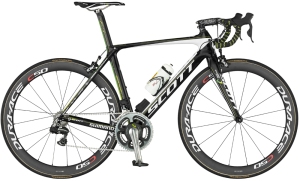
“Cycling is dynamic, competitive and truly appeals to a global audience,” said Orica boss Ian Smith when the sponsorship deal was announced. Orica GreenEDGE team manager is Shayne Bannan, the former Cycling Australia National Performance Director and Australian Institute of Sport’s Head Cycling Coach. His sporting directors include Australian cycling legend Neil Stephens, and former Australian tour pro Matt White.
The team has recruited a superb mix of experience and youth, with the veteran group including Stuart O’Grady, Baden Cooke, Michael Albasini, Julian Dean, Brett Lancaster, Matt Wilson and Svein Tuft. Standout squad talent includes Simon Gerrans, Matt Goss, Cameron Meyer, Jack Bobridge, Luke Durbridge, Jens Keukeleire and Leigh Howard.
Colourful winners
Every day of racing on the Tour brings acclaim to five riders; the winner of that day’s stage, and that day’s current holders of the four coloured jerseys; the yellow (Maillot Jaune), the Green (Maillot Vert), the Polka Dot (Maillot a Pose Rouges) and the White (Maillot Blanc).
The Yellow Jersey is the most prestigious; it is awarded to the leader of the Tour; ie, that rider who has taken the shortest accumulated time in total up until the end of that day’s stage. You may also hear him referred to as leading the General Classification (GC).
The Green Jersey is presented to the best sprinter so far in the Tour, based on an accumulated points system. Points are awarded for the first riders over the line at flat (sprint) stage finishes, and for those first over an intermediate, pre-determined point during those stages; if you see a sudden sprint battle during the middle of a flat stage, it is the Green Jersey contenders battling for points.
The Polka Dot Jersey is presented to the ongoing King of the Mountains; that rider who has performed best in the mountainous parts of the tour to date, based on a points system where each mountain is graded for difficulty, with those first over the top of those climbs gaining the most points.
The White Jersey is presented to the best-placed young rider (under 25) in the General Classification.
The real winners of these jerseys are those who lead their classifications when all is tallied up on the final day of the Tour, but wearing any of the jerseys for even one day is considered a glorious triumph.
Ride On content is editorially independent, but is supported financially by members of Bicycle Network. If you enjoy our articles and want to support the future publication of high-quality content, please consider helping out by becoming a member.





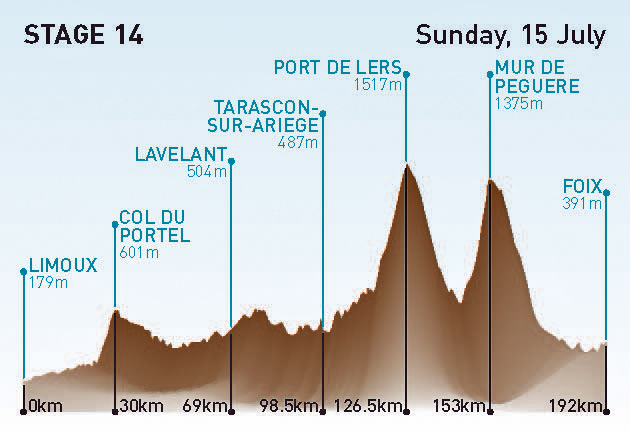




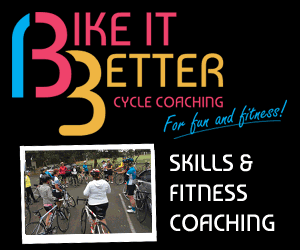

One thought on “1”